You are here
New Releases
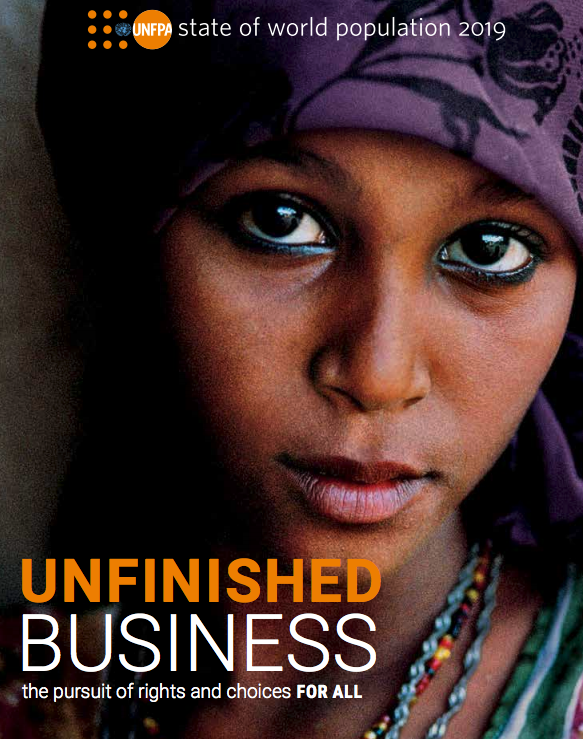
State of World Population 2019
Fifty years ago, it was hard for women to obtain contraception and relatively easy to die giving birth. Many women were unable to decide whom and when to marry, and when or whether to have children.
A worldwide movement to give women real choices in life culminated in the 1994 International Conference on Population and Development (ICPD), where a consensus was reached about the links between women’s empowerment, sexual and reproductive health, and rights and sustainable development.
Demographic Dividend in West and Central Africa 2018 Progress Report – Summary
We have completed the first year of our new four-year regional action plan, with activities and initiatives implemented in line with the:
Global UNFPA Strategic Plan 2018-2021 aiming to contribute to the achievement of the 2030 Agenda for Sustainable Development, the African Union (AU) Agenda 2063, and its roadmap on the Demographic Dividend.
2018 Progress Report on Demographic Dividend in West and Central Africa
Significant progress has been made in the provision of frontline reproductive health services to those in dire need, but much more still needs to be done. As part of the Ouagadougou Partnership, in which UNFPA is a core partner, the coordinated interventions of the partnership’s actors have enabled an additional 1,398,000 women to access and use modern contraceptive methods (63 per cent of target by 2020), from 2016 to 2018. Furthermore, UNFPA has contributed 70% to meeting WCARO countries’ contraceptive needs in 2018, while two other partners contributed the remaining 30%.

Presentation of Progress Report 2018: The Demographic Dividend in West and Central Africa UNFPA Regional Office for West and Central Africa
Presentation of Progress Report 2018: The Demographic Dividend in West and Central Africa UNFPA Regional Office for West and Central Africa January 21, 2019, UNFPA HQ, New York.
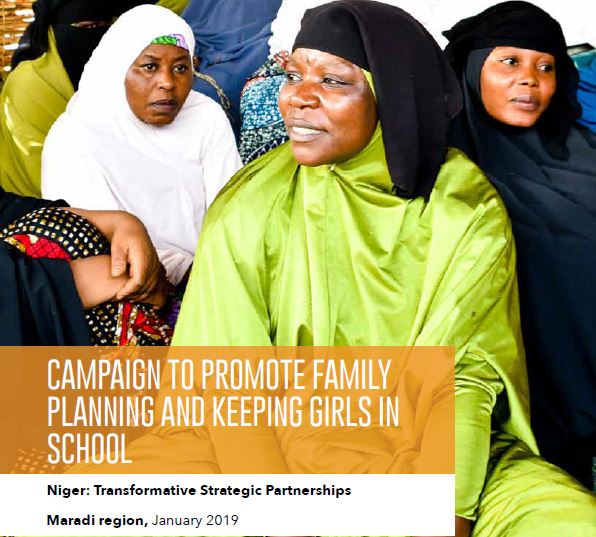
Campaign to promote family planning and keeping girls’ in school
Niger has one of the highest population growth rates in the world (3.9 per cent in 2012). The population is extremely young: people under 15 account for more than half of the total population (51.7 per cent). The extreme youth of the Nigerien population is related to its high fertility rate, which is six children per woman on average, linked to the strong desire to have children both among men (11 children) and women (9 children), and the low use of family planning (12.3 per cent).
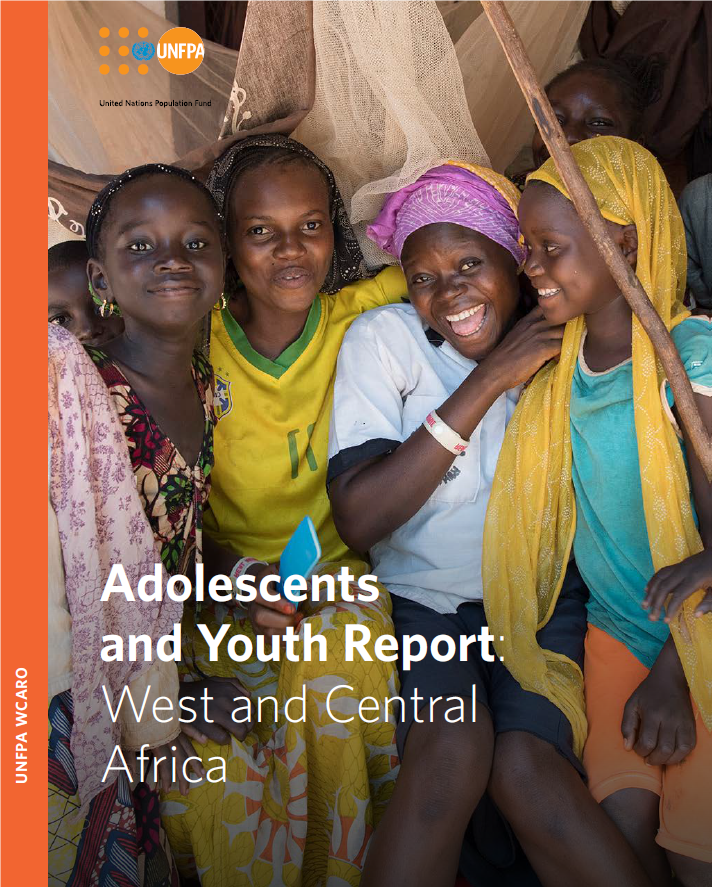
Adolescents and Youth Report: West and Central Africa
The Adolescents and Youth Report provides a comprehensive overview of the situation of young people in West and Central Africa today. It gives a detailed data and narrative analysis of the sexual and reproductive health, education, employment, social protection, gender issues, and emergency challenges that young people face in this region. The Report is meant to guide policy makers, programme implementers, young people and other key stakeholders to develop multisectoral policies and programmes that respond to the needs of young people. UNFPA urges government partners, UN agencies, youth groups and CSOs to use the Report's findings and recommendations to take actions and develop evidence-based policies and programmes that respond to the needs of young people.
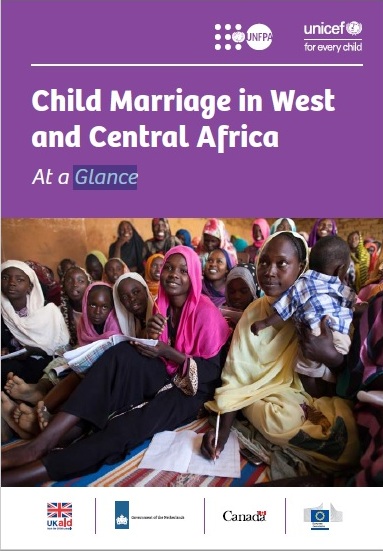
Child Marriage in West and Central Africa
Child marriage in West and Central Africa is one of the biggest challenges in the region and has enormous adverse effects on education, health, including sexual and reproductive health, and on the overall development of adolescents and youth. This brochure provides recent
data and analysis of child marriage in the region.
This brochure has been developed following the successful High Level Meeting on Child Marriage in West and Central Africa held in Senegal in October 2017.
This was the first-ever High Level Event on Child Marriage in the region. It is also been developed to support the African Union (AU) work on ending child marriage on the continent. It has been produced within the framework of the UNFPA-UNICEF Global Programme
to Accelerate Action to End Child Marriage as a resource for stakeholders working on, or researching, the issue of child marriage in West and Central Africa.
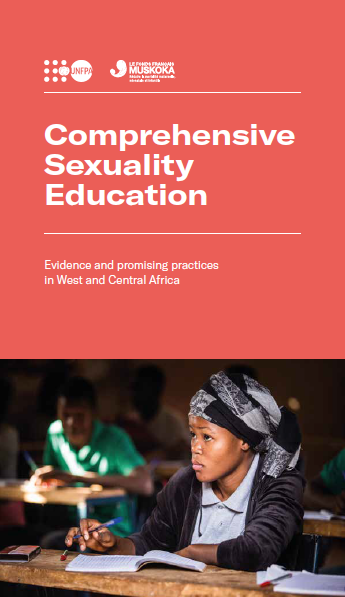
Comprehensive Sexuality Education : Evidence & Promising practices in West & Central Africa
This brochure documents the key elements for the implementation of Comprehensive Sexual Education (CSE). Using concrete examples from four countries in West Africa (Benin, Côte d’Ivoire, Senegal and Togo), the brochure documents promising practices, challenges and lessons learned, and makes key recommendations to be shared with all countries in the region.
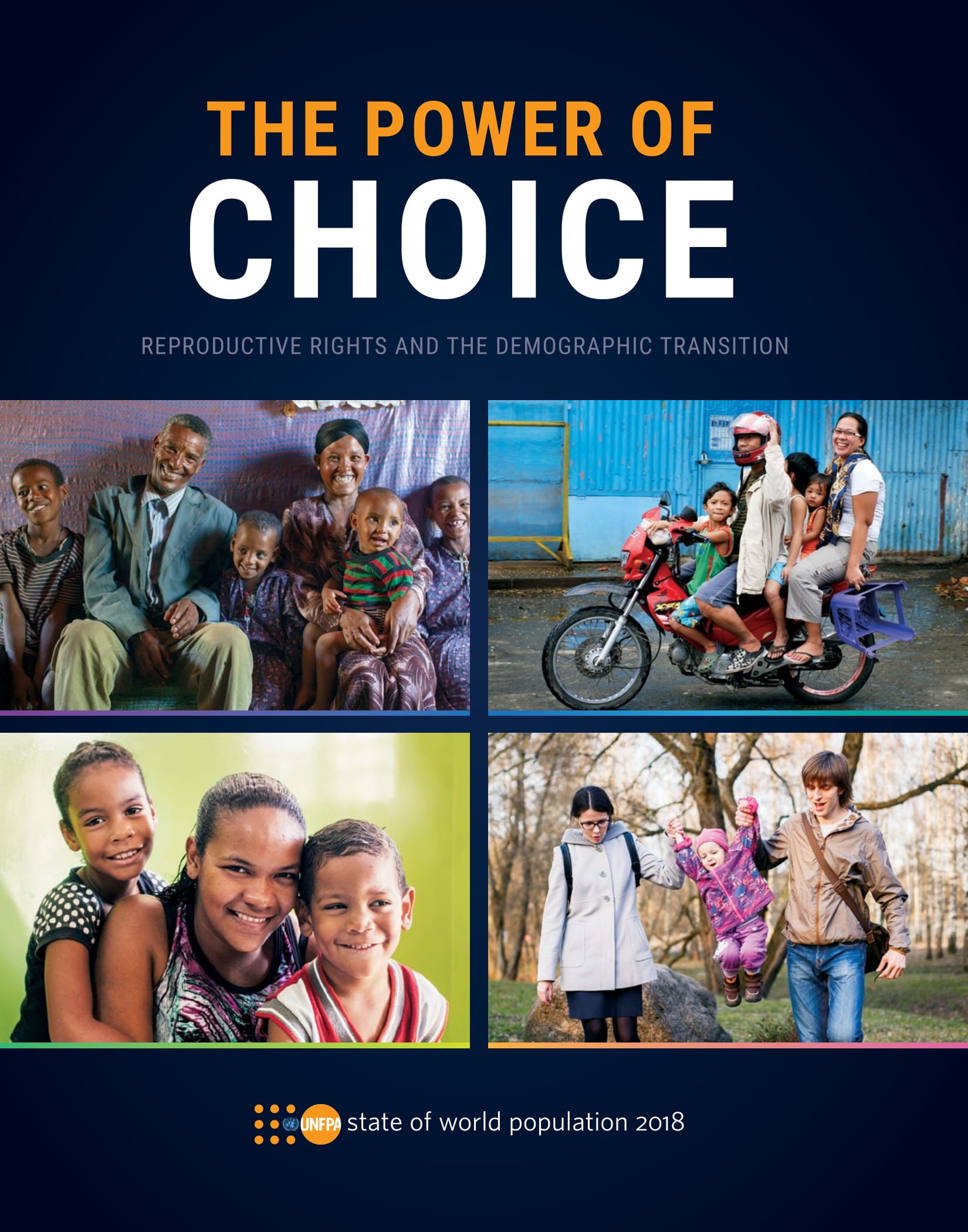
State of the World Populations 2018
The global transition from high to low fertility. Not so long ago, most people had large families: five children, on average. Where once there was one global fertility rate, today there are many, with differences wider than at any point in human history.
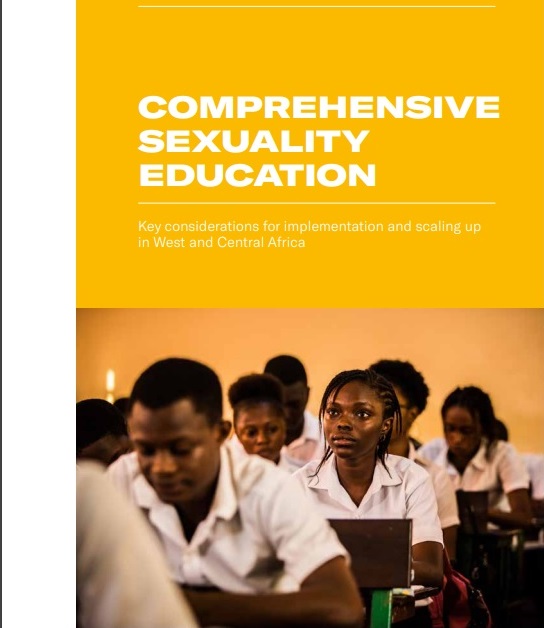
Comprehensive Sexuality Education:Key considerations for implementation and scaling up in West and Central Africa
This regional report, Comprehensive sexuality education: Key considerations for implementation and scaling up in West and Central Africa, documents promising practices and lessons learned, from four West African countries (Benin, Côte d’Ivoire, Senegal and Togo), and proposes key recommendations to be shared with all countries in the region. The UNFPA West and Central Africa Regional Office (WCARO) reiterates its full support to governments and other partners for developing and scaling up CSE programmes in all countries throughout the region. This support will enable young people throughout the region to develop their health and well-being with dignity.